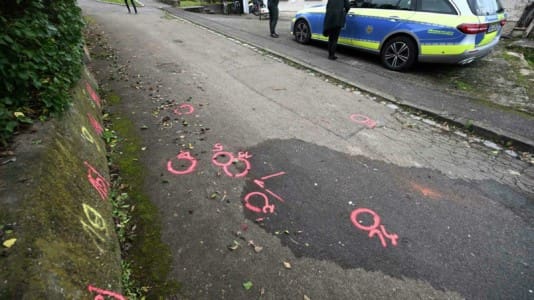Local residents celebrated a Dutch municipal council decision on Tuesday evening to reject a request by the central asylum agency to house asylum seekers in an assisted-living facility in the southern Dutch village of Bakel.
The Central Agency for the Reception of Asylum Seekers (COA) in the Netherlands had called upon the municipal council of Gemert-Bakel to accommodate 150 asylum seekers on the grounds of the local Zorgboog, a non-profit organization that offers assisted-living for vulnerable people in the country including the elderly, preventative child care, and people suffering from physical disability or mental illness.
Local residents loudly expressed their concerns about the plans, with over 450 people attending a council consultation to show their disapproval. Many considered the location, a site where vulnerable people already live and where a hospice is located, was entirely inappropriate.
[pp id=8028]
The local matter received national attention by the attendance of Party for Freedom (PVV) leader Geert Wilders who offered his support to residents in person at two local meetings.
The COA had initially requested the municipal council accept 300 asylum seekers for a total of ten years, a request that was rejected and followed up with a call to house 150 asylum seekers for up to two years.
On Tuesday, a majority of the city council rejected the latest proposal from the COA, instead offering a compromise of housing up to 70 asylum seekers but not on the grounds of the Zorgboog.
“This subject is a very difficult task for local politicians,” said Stefan Janszen, leader of the CDA, the largest party in the council.
[pp id=58456]
Many council members expressed a willingness to assist with the recent influx in asylum seekers to the country, and understood they needed to take their fair share in the local area, but considered 150 people too many for the village and deemed the proposed location unsuitable.
“We want a suitable solution for this social and humanitarian problem,” said Janszen. “The dragging of asylum seekers from sports hall to sports hall must stop and we want to contribute to this,” he added.
The problem now facing the village will be agreeing on a new location with local mayor, Michiel van Veen warning that there will never be a solution to please everyone.
“I predict that people will also call us at a new location. Then we have to go through this process again,” he said. “There will always be someone who does not find the location suitable. There will always be opponents,” van Veen added.
[pp id=61108]
Wilders took to Twitter on Tuesday evening to offer his congratulations to the Bakel residents who had opposed the plans.
“I have been to Bakel twice to support you, I hope it contributed a little to this fantastic result,” he wrote.
The current predicament seen in the Netherlands can be viewed as a microcosm of the wider issue affecting Europe, where leaders pledge to take in new arrivals but strong resistance is felt at a local or national level.
A wave of asylum applications has seen the Dutch government resort to accommodating refugees on five-star luxury cruise vessels, and offering municipalities significant financial incentives to take in their fair share.
As Europe grows inundated with migrants, the elderly are often being pushed aside to make room for this new population. In Ireland, nursing homes are closing down and being converted into refugee shelters, in large part due to government schemes that enable operators to earn far more money housing migrants. The crisis has grown so acute in Ireland, that the government has moved to ban the practice.





